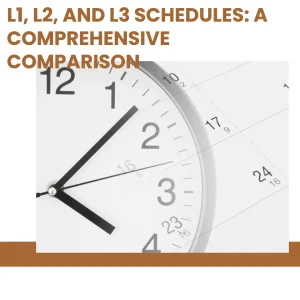Introduction
The Project Management Professional (PMP) certification stands out as a hallmark of excellence. Recognized globally, the PMP certification signifies a professional’s ability to lead and direct projects effectively across various industries. According to PMI’s Earning Power: Project Management Salary Survey—Twelfth Edition (2021), individuals holding a PMP certification can expect to earn, on average, 16% more than their non-certified counterparts, underscoring its value in enhancing earning potential and job opportunities [1][11].
This article aims to delve into the strategies that mid-career professionals can employ to maximize the benefits of their PMP certification for career advancement. As professionals navigate their career paths, leveraging this certification can open doors to new and exciting opportunities, making it a pivotal asset in their professional toolkit [2][12].
Targeting mid-career professionals, this discussion will provide actionable insights and practical approaches to harness the full potential of the PMP certification. By focusing on continuous learning, networking, and aligning personal goals with professional aspirations, readers will be equipped to elevate their careers and achieve their desired growth in the project management landscape [4][14].
Understanding the Value of PMP Certification
The Project Management Professional (PMP) certification is a globally recognized credential that signifies a high level of expertise in project management. For mid-career professionals aiming to advance their careers, understanding the value of this certification is crucial. Here’s a detailed overview of what PMP certification entails and why it is considered a valuable asset in the project management field.
Overview of the PMP Certification Process
To obtain the PMP certification, candidates must meet specific eligibility requirements, which include:
- Educational Background: Candidates need either a four-year degree along with 36 months of leading projects and 35 hours of project management education, or a high school diploma with 60 months of leading projects and the same 35 hours of education [3][8].
- Examination: The PMP exam consists of 180 questions that assess a candidate’s knowledge and understanding of project management principles and practices. The exam is designed to test the application of project management concepts in real-world scenarios [1][14].
The certification process not only validates a professional’s skills but also enhances their credibility in the eyes of employers and peers.
Statistics on Job Opportunities and Salary Increases
The benefits of PMP certification are evident in the job market. Research indicates that PMP-certified professionals enjoy:
- Higher Median Salaries: On average, individuals with a PMP certification earn 33% more than their non-certified counterparts [7][9]. This significant salary increase reflects the demand for skilled project managers who can effectively lead projects to success.
- Increased Job Opportunities: The certification opens doors to a wider range of job opportunities, as many organizations prioritize hiring PMP-certified candidates to fulfill essential project management roles [10][13]. This credential is often a prerequisite for advanced positions in project management.
Global Recognition of the PMP Credential
The PMP certification is recognized worldwide as a gold standard in project management. Its global recognition means that:
- Transferable Skills: PMP-certified professionals can leverage their skills across various industries and geographical locations, making them highly versatile in the job market [6][9].
- Professional Network: Being a part of the PMP community provides access to a vast network of professionals, which can lead to new opportunities, collaborations, and knowledge sharing [10][11].
Enhancing Your Skill Set Beyond Certification
For mid-career professionals in project management, obtaining a Project Management Professional (PMP) certification is a significant achievement that can open doors to advanced career opportunities. However, to truly maximize the benefits of this certification, it is essential to complement it with additional skills and continuous learning. Here are some strategies to enhance your skill set beyond the PMP certification:
Key Project Management Skills
- Leadership: Effective leadership is crucial in project management. It involves guiding teams, making strategic decisions, and inspiring others to achieve project goals. Developing leadership skills can help you manage diverse teams and navigate complex project dynamics more effectively.
- Communication: Strong communication skills are vital for project managers. This includes not only conveying information clearly but also actively listening to team members and stakeholders. Enhancing your communication skills can lead to better collaboration and stakeholder engagement, which are essential for project success.
- Risk Management: Understanding and managing risks is a core component of project management. Developing skills in risk assessment and mitigation can help you anticipate potential challenges and devise strategies to address them proactively. This skill is particularly valuable in today’s fast-paced and often unpredictable project environments.
Importance of Continuous Learning and Professional Development
The field of project management is dynamic and constantly evolving. Continuous learning is essential to stay relevant and competitive. Engaging in professional development activities can help you keep up with industry trends, new methodologies, and best practices. This commitment to lifelong learning not only enhances your skill set but also demonstrates to employers your dedication to your profession and your ability to adapt to changing circumstances [3][8].
Suggested Courses, Workshops, or Certifications
To further enhance your PMP credentials, consider pursuing additional courses or certifications that align with your career goals. Here are some suggestions:
- Agile Certifications: As many organizations adopt Agile methodologies, obtaining certifications such as Certified ScrumMaster (CSM) or PMI Agile Certified Practitioner (PMI-ACP) can be beneficial. These certifications can complement your PMP by equipping you with skills to manage projects in Agile environments.
- Leadership and Management Workshops: Participating in workshops focused on leadership and team management can help you develop essential soft skills that are critical for project success. Look for programs that offer practical insights and real-world applications.
- Risk Management Courses: Courses that delve deeper into risk management strategies can enhance your ability to identify, assess, and mitigate risks effectively. This knowledge is invaluable in ensuring project success and can set you apart from other project managers.
- Networking Opportunities: Engaging in networking events, such as PMI’s annual conferences or regional meetups, can provide opportunities to connect with other professionals, share knowledge, and gain insights from industry experts. Networking can also lead to mentorship opportunities and project collaborations, further enhancing your career growth [9][10].
Building a Strong Professional Network
Networking is a crucial element for mid-career professionals seeking to leverage their Project Management Professional (PMP) certification for career advancement. A robust professional network can open doors to new opportunities, provide valuable insights, and foster relationships that can significantly impact your career trajectory. Here are some strategies and tips to help you expand your network effectively:
Strategies for Expanding Your Professional Network
- Join Project Management Organizations: Becoming a member of professional organizations such as the Project Management Institute (PMI) can provide access to a wealth of resources, including networking events, workshops, and seminars. These organizations often host local chapters where you can meet fellow project managers and industry leaders, enhancing your visibility and connections within the field [6][8].
- Attend Conferences and Workshops: Participating in industry conferences and workshops is an excellent way to meet other professionals, learn about the latest trends, and share experiences. These events often feature networking sessions where you can engage with peers and industry experts, making it easier to establish meaningful connections [11][15].
The Role of Mentorship and Peer Support
- Seek Out Mentorship: Finding a mentor who has experience in project management can provide invaluable guidance and support. A mentor can help you navigate your career path, offer insights into industry best practices, and introduce you to their network, which can lead to new opportunities [11][12].
- Engage with Peers: Building relationships with colleagues and peers can create a support system that fosters professional growth. Engaging in discussions, sharing knowledge, and collaborating on projects can enhance your learning and expose you to different perspectives within the project management landscape [12].
Utilizing LinkedIn and Other Platforms
- Optimize Your LinkedIn Profile: Ensure your LinkedIn profile is up-to-date and highlights your PMP certification, skills, and accomplishments. Use keywords relevant to project management to increase your visibility in searches. A well-crafted profile can attract connections and opportunities from recruiters and industry professionals [12].
- Connect and Engage: Actively connect with other project management professionals on LinkedIn. Join relevant groups, participate in discussions, and share valuable content related to project management. Engaging with your network can help you stay informed about industry trends and job openings, while also showcasing your expertise [12][15].
- Leverage Other Social Media Platforms: Besides LinkedIn, consider using platforms like Twitter and professional forums to connect with industry leaders and participate in discussions. Sharing insights and engaging with content from other professionals can help you build a broader network and establish your presence in the project management community [12].
By focusing on these strategies, mid-career professionals can effectively leverage their PMP certification to build a strong professional network, which is essential for career advancement. Networking not only enhances your visibility but also provides opportunities for mentorship, collaboration, and professional growth, ultimately leading to a more successful career in project management.
Leveraging PMP Certification in Job Search
For mid-career professionals aiming to advance their careers, the Project Management Professional (PMP) certification can be a significant asset. Here are strategies to effectively utilize your PMP certification in job applications, ensuring you stand out in a competitive job market.
Highlighting PMP Certification on Resumes and LinkedIn Profiles
- Prominent Placement: Ensure your PMP certification is prominently displayed at the top of your resume, ideally in the header or summary section. This immediate visibility can catch the attention of hiring managers who prioritize this credential [3][11].
- Dedicated Certification Section: Create a dedicated section for certifications on your resume. List your PMP certification along with the issuing organization (Project Management Institute) and the date obtained. This clarity helps recruiters quickly assess your qualifications [12].
- LinkedIn Optimization: On LinkedIn, add your PMP certification to the “Licenses & Certifications” section. Use keywords related to project management in your profile summary and experience descriptions to enhance searchability. Highlight specific projects where you applied PMP methodologies to demonstrate practical application [4][11].
Tailoring Applications to Emphasize PMP-Related Skills and Experiences
- Customizing Job Applications: When applying for jobs, tailor your resume and cover letter to align with the specific requirements of the position. Use the job description to identify key skills and responsibilities, and incorporate relevant PMP-related experiences that showcase your ability to lead projects effectively [6][12].
- Quantifying Achievements: Use metrics to quantify your project management achievements. For instance, mention how you led a project that resulted in a 20% increase in efficiency or completed a project under budget. This not only highlights your PMP skills but also demonstrates your impact on previous employers [11][12].
- Showcasing Soft Skills: In addition to technical skills, emphasize soft skills gained through your PMP training, such as leadership, communication, and problem-solving. These are often critical for project management roles and can set you apart from other candidates [6][11].
Strategies for Preparing for Interviews with a Focus on PMP Methodologies
- Understanding Key Methodologies: Familiarize yourself with various project management methodologies covered in the PMP curriculum, such as Agile, Waterfall, and Scrum. Be prepared to discuss how you have applied these methodologies in past projects during interviews [14].
- Behavioral Interview Techniques: Prepare for behavioral interview questions by using the STAR method (Situation, Task, Action, Result). This approach allows you to articulate your experiences effectively, showcasing how your PMP training has equipped you to handle challenges in project management [15].
- Demonstrating Continuous Learning: Highlight your commitment to ongoing professional development by discussing any additional training or certifications you have pursued since obtaining your PMP. This demonstrates your dedication to staying current in the field and your proactive approach to career growth [7][11].
By strategically leveraging your PMP certification in your job search, you can enhance your visibility to potential employers and position yourself as a strong candidate for advancement in project management roles.
Positioning Yourself for Leadership Roles
As mid-career professionals seek to advance in their careers, obtaining a Project Management Professional (PMP) certification can serve as a significant stepping stone. However, leveraging this certification effectively requires a strategic approach. Here are key strategies to position yourself for higher-level roles, such as program manager or executive positions, using your PMP certification.
Understanding the Transition from Project Manager to Program Manager or Executive Roles
Transitioning from a project manager to a program manager or executive role involves a shift in focus from managing individual projects to overseeing multiple projects and aligning them with organizational goals. Here are some considerations for making this transition:
- Broaden Your Perspective: As a project manager, your focus is primarily on project execution. To move into program management, you need to understand how various projects interconnect and contribute to broader business objectives. This requires a strategic mindset and the ability to see the bigger picture [6].
- Seek Leadership Opportunities: Actively look for opportunities to lead cross-functional teams or initiatives within your organization. This experience will help you develop the necessary skills to manage multiple projects and stakeholders effectively [5].
- Network with Senior Leaders: Building relationships with executives and other leaders can provide insights into the skills and competencies required for higher-level roles. Attend industry conferences and networking events to connect with influential figures in your field [10][11].
Importance of Soft Skills in Leadership Positions and How to Develop Them
While technical skills are essential for project management, soft skills are equally critical for leadership roles. Here’s how to enhance your soft skills:
- Emotional Intelligence: Develop your ability to understand and manage your emotions and those of others. This skill is vital for effective communication, conflict resolution, and team motivation [8].
- Communication Skills: Strong communication is key to leadership. Practice active listening, clear articulation of ideas, and providing constructive feedback. Consider joining public speaking groups or workshops to refine these skills [8].
- Adaptability and Problem-Solving: Leaders often face unexpected challenges. Cultivating a mindset that embraces change and fosters innovative problem-solving will set you apart as a candidate for leadership roles [8].
Examples of Leadership Frameworks and Models
Familiarizing yourself with various leadership frameworks can enhance your approach to leadership and team management. Here are a few models to consider:
- Servant Leadership: This model emphasizes the leader’s role as a servant to their team, focusing on the growth and well-being of team members. By adopting this approach, you can foster a supportive environment that encourages collaboration and empowerment [8].
- Transformational Leadership: Transformational leaders inspire and motivate their teams to exceed expectations by fostering an environment of innovation and change. Embracing this model can help you drive significant improvements and inspire your team to achieve their best [8].
By strategically leveraging your PMP certification and focusing on these key areas, you can position yourself for leadership roles that not only enhance your career but also contribute to the success of your organization. The journey from project manager to a higher-level position is not just about technical expertise; it’s about developing a holistic skill set that includes leadership, emotional intelligence, and strategic thinking.
Staying Relevant in a Changing Industry
Mid-career professionals must prioritize adaptability and continuous learning to leverage their Project Management Professional (PMP) certification effectively. Here are some key strategies to ensure you remain relevant and maximize the benefits of your PMP certification for career advancement:
- Embrace Emerging Trends: The project management landscape is evolving, with trends such as Agile methodologies and digital transformation taking center stage. Agile practices allow for more flexibility and responsiveness in project execution, which is increasingly important in today’s fast-paced environments. Familiarizing yourself with these methodologies can enhance your project management skills and make you a more attractive candidate for leadership roles that require such expertise [5][4].
- Stay Current with Certifications and Methodologies: The importance of keeping your skills and knowledge up to date cannot be overstated. The project management field is constantly changing, and new methodologies and certifications emerge regularly. Engaging in continuous professional development, such as earning additional certifications or attending workshops, can help you stay competitive and relevant in your field [12][11].
- Engage with Thought Leaders: Networking and learning from industry experts can provide valuable insights into best practices and emerging trends. Consider following thought leaders in project management on social media, participating in relevant webinars, and subscribing to industry podcasts and blogs. This engagement not only broadens your knowledge but also helps you build a professional network that can open doors to new opportunities [11][6].
- Leverage Your PMP Certification: Your PMP certification is a significant asset that validates your skills and knowledge in project management. Use it as a foundation to explore new areas within the field, such as risk management or strategic planning. By showcasing your certification and the skills you’ve gained, you can position yourself for leadership roles that influence strategic decisions within organizations [4][3].
By focusing on these strategies, mid-career professionals can effectively leverage their PMP certification to navigate the changing landscape of project management, ensuring they remain relevant and poised for career growth.
Conclusion
In today’s competitive job market, leveraging your Project Management Professional (PMP) certification can significantly enhance your career growth. The PMP certification is not just a credential; it serves as a powerful tool that opens doors to advanced career opportunities and increases your earning potential. According to PMI’s Earning Power: Project Management Salary Survey, individuals with a PMP certification can earn, on average, 16% more than their non-certified counterparts, underscoring its value in the professional landscape [1].
To maximize the benefits of your PMP certification, it is essential to adopt proactive strategies. These include updating your resume to reflect your certification, engaging in continuous learning to stay relevant in the field, and strategically networking with other professionals. By embracing these approaches, you can position yourself as a leader in project management and enhance your visibility to potential employers [3][12].
As you reflect on your personal career goals, consider how your PMP certification can play a pivotal role in achieving them. Whether it’s aiming for a promotion, transitioning to a new industry, or expanding your professional network, the PMP certification can be a catalyst for your aspirations. Take the time to assess your needs, research further opportunities, and plan your next steps to ensure that you are making the most of your certification [4][5].
In summary, the PMP certification is a valuable asset for mid-career professionals seeking to advance their careers. By implementing the strategies discussed, you can effectively leverage your certification to unlock new opportunities and achieve your professional goals. Now is the time to take action and invest in your future. Reflect on your career path and envision how the PMP certification can help you reach new heights.
Find out more about Shaun Stoltz https://www.shaunstoltz.com/about/.
This post was written by an AI and reviewed/edited by a human.



